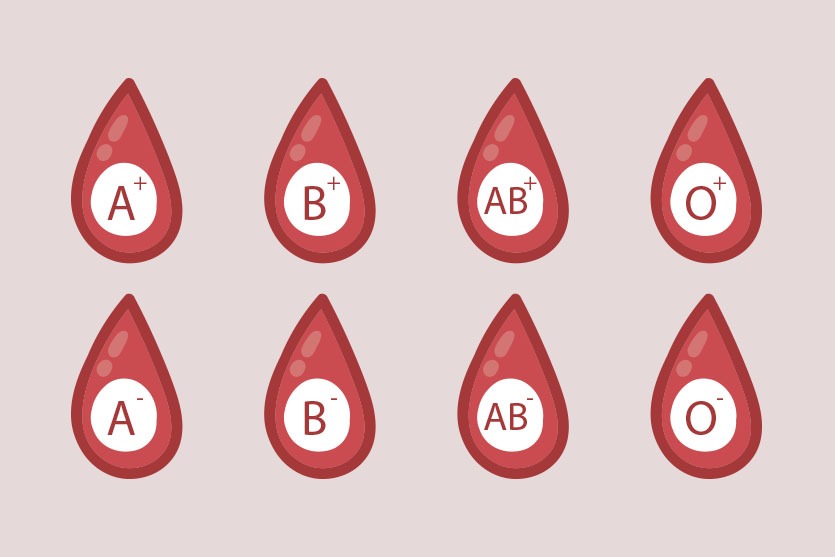
The Innovative Role of Platelet Therapy in Combating Chronic Diseases
A compelling start and attention-grabbing lines about platelet therapy:
“The world of medicine and technology is witnessing a remarkable revolution in the realm of modern treatments. Among these promising medical innovations, platelet therapy emerges as an inspiring step towards reshaping healthcare. Going beyond the boundaries of conventional drugs, it relies on the use of minute blood particles to address a wide range of chronic diseases and complex health conditions.
This new technique presents astonishing opportunities to expedite healing processes and offer targeted treatments for neurological diseases, inflammations, and more, opening new horizons for healthcare. In this article, we delve into promising details about platelet therapy, based on the latest discoveries and research, to take a close look at its innovative role in combating chronic diseases and enhancing quality of life.”
Platelet Therapy
Platelet therapy, also known as “personalized platelet therapy,” is an innovative treatment method that involves using platelets—encompassing both natural and modified and enhanced platelets—to treat chronic diseases.
Platelets play a vital role in the body’s clotting and healing processes. These tiny blood components, thrombocytes, aggregate and adhere to injury sites to stop bleeding and form clots. Moreover, they have significant effects on tissue renewal and wound healing.
The Role of Platelets in Clotting and Healing Platelets play a pivotal role in clotting and healing processes, exerting important effects on tissue healing and regeneration. When used in innovative therapies, they can effectively combat chronic diseases in various ways, including:
- Tissue Regeneration: Platelets contain growth factors like PDGF and TGF-β along with other proteins that play a crucial role in tissue regeneration. These factors stimulate the growth of new cells and repair damaged tissues, accelerating the healing process after injuries or surgeries.
- Immune Stimulation: Research indicates that genetically modified platelets can contribute to activating the immune system. Thus, this property is used to combat chronic diseases associated with inflammations like rheumatic diseases and inflammatory neurological conditions.
- Gene-Targeted Therapies: When platelets are genetically modified, they can be used to deliver specific treatments to targeted body parts, reducing the side effects of treatment and enhancing its overall effectiveness.
- Nanotechnology in Therapy: Nanotechnology techniques use platelets to deliver drugs directly to affected areas with precision. This capability reduces side effects and improves drug delivery to targeted tissues without affecting healthy tissues.
- Tumor Treatments: Some studies suggest the potential use of platelets in fighting tumors. They can help stimulate the immune system to combat cancer cells and bolster the body’s natural processes in fighting cancer.
These diverse applications showcase the versatility and capabilities of platelets in innovative and future medical treatments. Continued research and development indicate astounding potentials for their possible medical uses.
Platelet therapy is still in the research and development phase, but preliminary results and studies demonstrate promising potential for its use in various fields to combat chronic diseases.
What is Platelet Therapy and How Is It Used?
Platelet therapy is a medical procedure that uses platelets—a component of blood rich in proteins and growth factors—with the aim of enhancing healing and treating a diverse range of medical conditions. Platelets consist of small cells responsible for clotting and healing processes in the body.
Platelet therapy is used in various medical contexts, including:
- Innovative Clinical Treatments: Modified and enhanced genetically platelets form part of innovative clinical treatments, being tailored to target specific issues in the body such as tumors and chronic diseases.
- Combatting Inflammatory Diseases: Research suggests that the use of platelets may be effective in addressing inflammatory diseases like rheumatic diseases and joint inflammations.
- Tissue Regeneration: Platelet therapy is used to enhance tissue regeneration, speeding up healing processes after injuries or surgeries.
- Burn Treatments: Platelet therapy is sometimes used in severe burn treatments to support skin healing.
- Cancer Treatments: Platelets can be utilized as part of experimental therapies to combat cancerous tumors.
Recent Advances in Scientific Research
Previously limited to specific domains, the recent advances in scientific research hint at new possibilities. Techniques have been developed to enhance and genetically modify platelets to increase their efficacy and precision in therapeutic interventions.
Challenges and Future Prospects
Despite substantial promises, challenges lie ahead in the use of platelet therapy, including safety concerns, potential side effects, and the development of delivery techniques. Nevertheless, future prospects remain bright with advancements in science and technology in this field.
Promising Therapeutic Applications
Beyond chronic diseases, there are promising alternative uses for platelet therapy, such as its use in severe burn treatments and its contribution to tissue repair after acute injuries, reflecting ongoing efforts to develop its applications in diverse fields.
Ethics of Platelet Therapy Use
The development of new techniques raises numerous ethical questions regarding the use of platelet therapy, such as patient privacy preservation and ensuring safety and efficacy. These aspects must be considered during research and development in this field.
Role of Awareness and Education
Awareness and education about platelet therapy are vital. Enhancing public understanding of the benefits of this technique, along with emphasizing its ethical and legal aspects, is crucial.
Conclusion:
At the culmination of this journey into the realm of platelet therapy, we realize that this technique represents a paradigm shift in modern medicine. By harnessing the body’s natural forces, platelets open up new horizons for treatment and healing.
While the road ahead is long, and this technique requires further research and development, the initial results are highly promising. Its ability to address chronic diseases and stimulate tissue regeneration makes it one of the most prominent innovations that is poised to bring about a change in healthcare.
With the continued advancement of science and technology, we anticipate a promising future where genetically modified platelets might be an effective means to combat numerous diseases that previously required complex treatments. Therefore, this exciting and innovative realm promises a healthier and happier future for humanity.









Gage3448
April 30, 2025Awesome https://is.gd/N1ikS2
Austin339
May 24, 2025https://shorturl.fm/XIZGD
Nelson195
May 25, 2025https://shorturl.fm/XIZGD
Zane3743
May 25, 2025https://shorturl.fm/a0B2m
Beau253
May 25, 2025https://shorturl.fm/oYjg5
Aspen2769
May 26, 2025https://shorturl.fm/bODKa
Marcel4120
May 26, 2025https://shorturl.fm/5JO3e
Percy3741
May 26, 2025https://shorturl.fm/bODKa
Bill3663
May 27, 2025https://shorturl.fm/FIJkD
Brielle3776
May 27, 2025https://shorturl.fm/TbTre
Albert4335
May 28, 2025https://shorturl.fm/a0B2m
Felix327
May 28, 2025https://shorturl.fm/m8ueY
Elijah2212
May 28, 2025https://shorturl.fm/oYjg5
Aspen2806
May 28, 2025https://shorturl.fm/6539m
Bryan291
May 28, 2025https://shorturl.fm/FIJkD
Luca1223
May 28, 2025https://shorturl.fm/YvSxU
Kayla3968
May 29, 2025https://shorturl.fm/TbTre
Jolene1033
May 30, 2025https://shorturl.fm/68Y8V
Alistair2130
May 30, 2025https://shorturl.fm/IPXDm
Hunter69
May 30, 2025https://shorturl.fm/retLL
Beth4938
May 31, 2025https://shorturl.fm/VeYJe
Alivia394
May 31, 2025https://shorturl.fm/JtG9d
Alayna4375
May 31, 2025https://shorturl.fm/hQjgP
Margaret2809
May 31, 2025https://shorturl.fm/fSv4z
Rochelle998
June 2, 2025https://shorturl.fm/xlGWd
Jonah2580
June 2, 2025https://shorturl.fm/hevfE
Colby2500
June 2, 2025https://shorturl.fm/I3T8M